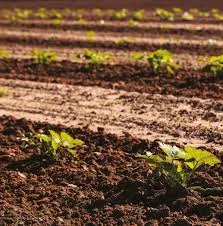

The Nigerian agricultural sector faces numerous challenges that hinder its potential as a key driver of the economy and food security. Some of the critical problems include:
1. Climate Change and Environmental Challenges
Flooding and Drought: Erratic weather patterns, flooding, and droughts have damaged farmlands and reduced crop yields.
Soil Degradation: Over-farming and poor soil management practices lead to reduced fertility.
2. Inadequate Infrastructure
Transportation Issues: Poor road networks and transportation facilities make it difficult for farmers to access markets and deliver their produce.
Storage and Processing: Limited cold storage and processing facilities result in high post-harvest losses.
3. Lack of Access to Finance
Farmers, particularly smallholders, face difficulties accessing affordable credit for inputs, machinery, and technology.
High-interest rates and lack of collateral requirements by banks further complicate this issue.
4. Insecurity
Armed conflicts, banditry, and farmer-herder clashes have displaced farmers and disrupted agricultural activities in several regions.
5. Low Mechanization
Most farming in Nigeria relies on manual labor and traditional tools, resulting in low productivity compared to global standards.
6. Policy and Governance Issues
Inconsistent policies and inadequate government support have hindered sectoral growth.
Corruption and mismanagement of agricultural funds remain a challenge.
7. High Costs of Inputs
Rising costs of fertilizers, seeds, and other essential farming inputs have made farming less profitable for smallholders.
8. Lack of Agricultural Education and Research
Limited access to modern agricultural knowledge and poor dissemination of research findings reduce farmers’ ability to improve yields and adopt new practices.
9. Land Tenure System
Nigeria’s land ownership system creates challenges for farmers, particularly women, in securing land for agricultural purposes.
10. Market Access and Price Fluctuations
Farmers face difficulties in finding stable markets for their produce.
Price volatility, influenced by middlemen, inflation, and market inefficiencies, further affects income stability.
11. Pests and Diseases
Crop pests (e.g., locusts, weevils) and diseases significantly reduce yields, while inadequate pest control measures worsen the situation.
Addressing these issues requires a coordinated approach, including government intervention, private sector investment, and international collaboration.